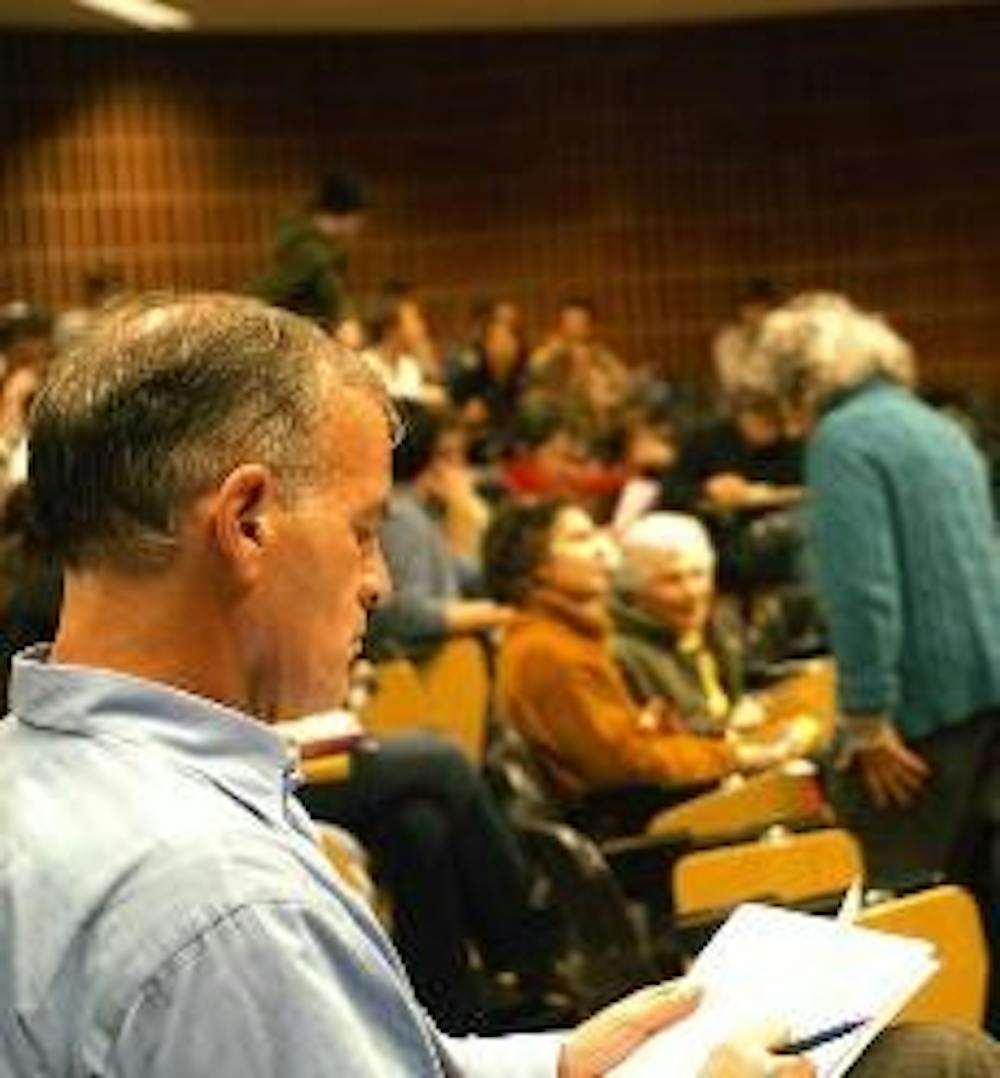Despite contention among the student body, University officials are standing by their decision to bring the controversial Norman Finkelstein to campus, saying that funding does not translate into endorsement.
The event with Finkelstein, a professor at DePaul University, was co-sponsored by the Political Science department and the Middle East Center, which provided $300 and $250, respectively, toward Finkelstein's speaking fee, said College senior Sara Barclay of Students for Justice in Palestine.
SJP, among other groups, brought in Finkelstein to speak about the Middle East as part of Palestine Awareness Week.
But some students question whether the University should be funding such controversial- - and, in this case, what some characterize as offensive - speakers to come to campus.
A range of sources, from acclaimed historian Benny Morrison to The New York Times, have questioned Finkelstein's credibility as a historian and have alleged him to be everything from anti-Semitic, anti-Israel and a Holocaust revisionist.
Still, officials say that bringing in such a controversial speaker does not imply that they legitimize or promote his views.
"Our decision to co-sponsor a speaker in no way reflects that we agree with or endorse the views of any particular speaker," said Avery Goldstein, the undergraduate chair of the Political Science department.
He said that the department does not make an evaluation on the overall quality of a speaker's work.
Goldstein explained that, when a student group approaches the department about co-sponsoring a speaker, he consults his colleagues - in this case, Political Science professor Ian Lustick - on whether a speaker should be brought in.
"Our preference is to err on the side of being generous," he said.
The MEC had a similar argument: According to the Center's Web site, its "co-sponsorship in no way indicates endorsement of a particular point of view."
"We cannot engage in the practice of censorship," said MEC Director Firoozeh Kashani-Sabet of the Center's policy to bring in controversial speakers.
And, despite receiving a letter from about 60 students asking him to intervene in the matter, University Provost Ronald Daniels is likewise sticking by the Political Science's department and MEC's decisions.
"The University's Guidelines on Open Expression apply to all members of the University community," Daniels wrote in an e-mail. "They protect the right of student groups and faculty members to bring in controversial speakers, and the right for those who disagree to voice those opinions."
The issue surrounding the University's sponsorship of Finkelstein first came into the public eye when representatives from Hillel and the Penn Israel Coalition co-authored a UA proposal that urged the University departments to revoke their funding for both Finkelstein's speech and future speakers that would raise similar questions regarding academic credibility.
In a meeting Sunday night, the UA fell two votes short of the two-thirds majority needed to put the resolution on the table for discussion.
Meanwhile, student leaders disagree over whether the University made the right decision.
"Considering Finkelstein's lack of credibility and the fraudulent message he promotes, . bringing in such an ill-reputed speaker only hurts [the University's] own credibility," College senior and Hillel president Ezra Billinkoff said.
Conversely, Barclay said that "it would actually be to the University's discredit . to stifle the speaker."
Others have questioned the University's sponsorship in general.
"The University is setting a very serious double standard by refusing to fund political speeches by either party, Republican or Democrat, but . paying to bring radicals like Finkelstein to campus," said Wharton sophomore Clayton Robinson, the president of Penn Democrats.
"We think that is a very dangerous message to set," he said.



